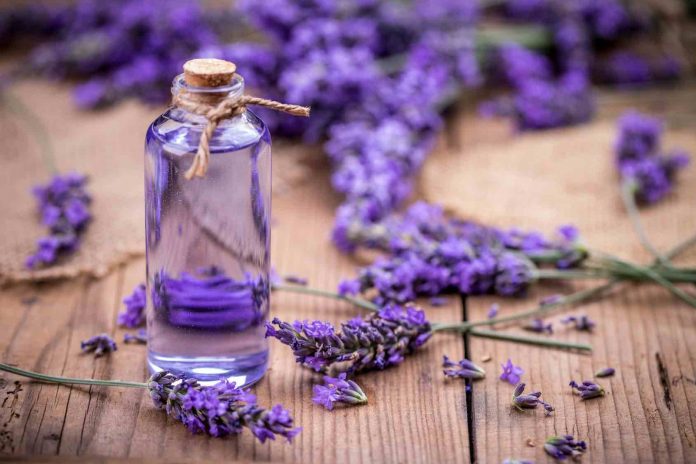Lavender works its relaxing magic all around us: from garden borders to bath bombs to fabric softener. But why not in our hospitals and clinics? And what is the science behind the magic?
Research published in Frontiers in Behavioral Neuroscience shows that the vaporized lavender compound linalool must be smelled, not absorbed in the lungs, to exert its calming effects.
“In folk medicine, it has long been believed that odorous compounds derived from plant extracts can relieve anxiety,” says co-author Hideki Kashiwadani, PhD, of Kagoshima University, Japan, in a release.
Modern medicine has overlooked these scent options, the authors say, despite a need for safer alternatives to current anxiolytic drugs like benzodiazepines.
Numerous studies now confirm the potent relaxing effects of linalool, a fragrant alcohol found in lavender extracts. “However, the sites of action of linalool were usually not addressed in these studies,” Kashiwadani says. Many assumed that absorption into bloodstream via the airway led to direct effects on brain cell receptors such as GABAARs (also the target of benzodiazepines). But establishing the true mechanism of linalool’s relaxing effects is a key step in moving towards clinical use in humans.
Kashiwadani and colleagues tested mice to see whether it is the smell of linalool—that is, stimulation of olfactory (odor-sensitive) neurons in the nose—that triggers relaxation.
“We observed the behavior of mice exposed to linalool vapor, to determine its anxiolytic effects. As in previous studies, we found that linalool odor has an anxiolytic effect in normal mice. Notably, this did not impair their movement,” he says, adding that this contrasts with benzodiazepines, and linalool injections, whose effects on movement are similar to those of alcohol.
But there was no anxiolytic effect in anosmic mice (whose olfactory neurons have been destroyed) indicating that the relaxation in normal mice was triggered by olfactory signals evoked by linalool odor.
What’s more, the anxiolytic effect in normal mice disappeared when they were pretreated with flumazenil, which blocks benzodiazepine-responsive GABAA receptors. “When combined, these results suggest that linalool does not act directly on GABAA receptors like benzodiazepines do, but must activate them via olfactory neurons in the nose in order to produce its relaxing effects,” Kashiwadani says.
“Our study also opens the possibility that relaxation seen in mice fed or injected with linalool could in fact be due to the smell of the compound emitted in their exhaled breath.”
Similar studies are therefore needed to establish the targets, safety, and efficacy of linalool administered via different routes, the authors say, before a move to human trials.
“These findings nonetheless bring us closer to clinical use of linalool to relieve anxiety, in surgery for example, where pretreatment with anxiolytics can alleviate preoperative stress and thus help to place patients under general anesthesia more smoothly. Vaporized linalool could also provide a safe alternative for patients who have difficulties with oral or suppository administration of anxiolytics, such as infants or confused elders.”








